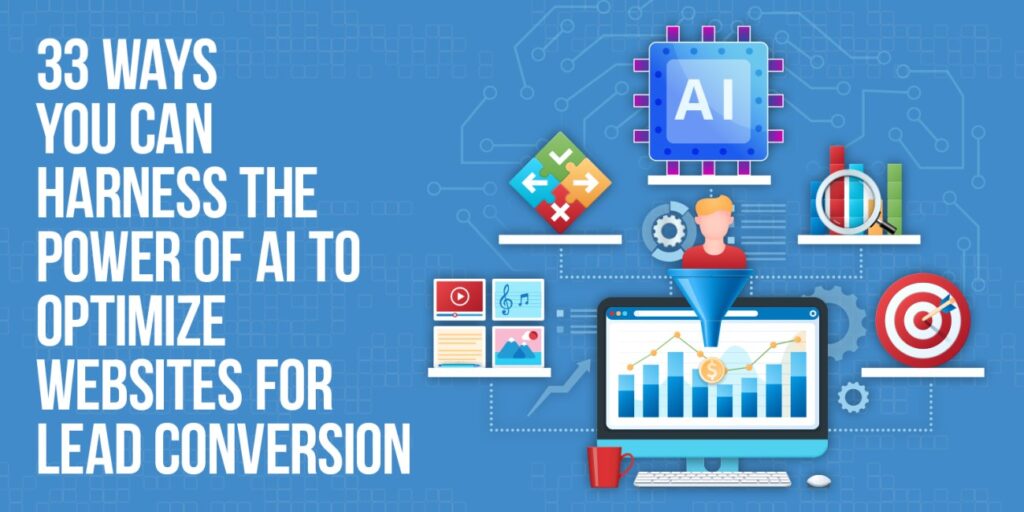
In today’s digital era, businesses strive to maximize their online presence and convert website visitors into valuable leads. Artificial intelligence (AI) has emerged as a powerful tool that can significantly enhance lead conversion rates by leveraging data-driven insights, personalization, and automation. In this blog post, we will explore how AI can be used to optimize websites for lead conversion, empowering businesses to achieve higher conversion rates, increase customer engagement, and drive growth.


The integration of AI technology into lead generation strategies offers immense potential for businesses to generate more website leads. Through data analysis, predictive modeling, personalization, chatbots, conversion rate optimization, lead scoring, voice search optimization, and continuous improvement, AI empowers businesses to optimize their websites and engage with potential customers more effectively. Leveraging AI-driven approaches, businesses can increase lead conversion rates, drive business growth, and stay ahead in the competitive online landscape. As AI continues to advance, its role in lead generation will become even more crucial, enabling businesses to adapt and thrive in the digital era.
Remember, while AI can significantly enhance lead conversion optimization, it should be complemented by a holistic marketing strategy, user-centric design, and regular monitoring to ensure continuous improvement. By incorporating these additional steps, you can harness the power of AI to continuously optimize your website for lead conversion, provide a personalized user experience, and drive meaningful business results. It’s essential to monitor, analyze, and interpret the results to make informed decisions and adapt your approach accordingly.